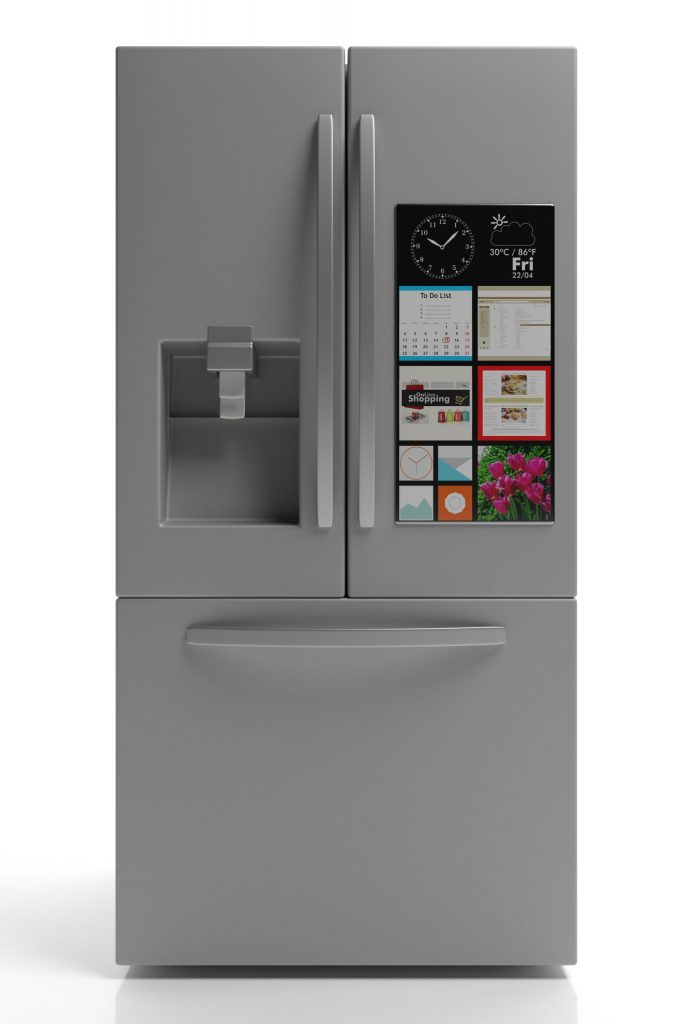Refrigerators are the unsung heroes of our kitchens. Keeping our food fresh and safe, they play a vital role in maintaining a healthy household. But like any workhorse, proper care and maintenance are essential to ensure extending the lifespan of your refrigerator. Here’s how to turn your fridge into a long-lasting champion:

Extending the Lifespan of Your Refrigerator With Regular Cleaning and Maintenance
- Interior Cleanliness is Key: Spills and food residue can harbor bacteria and create unpleasant odors. Regularly wipe down the shelves, drawers, and walls with warm soapy water, followed by a disinfectant solution (always check the manufacturer’s recommendations before using any cleaning products). This simple practice goes a long way in maintaining a hygienic environment for your food.
- Don’t Forget the Outside: Fingerprint smudges and food splatters on the exterior not only detract from your kitchen’s aesthetics but can also harbor bacteria. A good cleaning with a damp cloth followed by a stainless steel polish for specific finishes keeps your refrigerator looking and functioning its best.
- Unclog for Efficiency: The condenser coils, typically located on the back or underside of the refrigerator, are responsible for releasing heat. Dust and debris can accumulate on these coils, hindering their performance. Regularly cleaning the coils with a vacuum cleaner or a soft brush improves airflow and helps your refrigerator operate efficiently, saving you money on energy bills.
- Seal the Deal: A tight seal on the refrigerator door is crucial for maintaining proper temperature and extending the lifespan of your refrigerator. Inspect the door gaskets for any cracks or tears – a simple “dollar bill test” can help. If the bill slides out easily, the seal needs replacement. A damaged seal allows warm air to enter, forcing the refrigerator to work harder and ultimately shortening its lifespan.
Optimal Temperature Settings and Food Storage Practices
- Find the Perfect Chill: The recommended temperature for a refrigerator is 40°F (4°C). This temperature inhibits bacterial growth, keeping your food fresh and free from spoilage. Refer to your user manual for specific temperature settings for different compartments within your refrigerator.
- Organize for Efficiency: Proper food storage practices are essential for maintaining a consistent temperature and preventing cross-contamination. Keep raw meat and poultry on the bottom shelf to avoid drips contaminating other foods. Utilize airtight containers for leftovers and cooked food to prevent odors and moisture transfer.
- Give Your Fridge Some Space: Overcrowding hinders airflow, making the refrigerator work harder to maintain the desired temperature. This not only reduces efficiency but also can lead to uneven cooling and potential spoilage. Aim to keep your refrigerator about three-quarters full for optimal performance.
- Defrosting for Manual Models: If you have a manual defrost refrigerator, regular defrosting is crucial. Frost buildup reduces freezer space and forces the motor to work harder. Defrosting involves removing the accumulated ice and wiping down the interior surfaces.
By following these simple tips and maintaining a consistent cleaning and maintenance routine, you can ensure extending the lifespan of your refrigerator. Keep in mind that a well-maintained refrigerator is a happy (and energy-efficient) refrigerator!
If your refrigerator starts to show signs of trouble, don’t hesitate to contact All Area Appliance for expert repair services. Our technicians are skilled at diagnosing and resolving a wide range of refrigerator issues, ensuring your appliance continues to perform at its peak.

